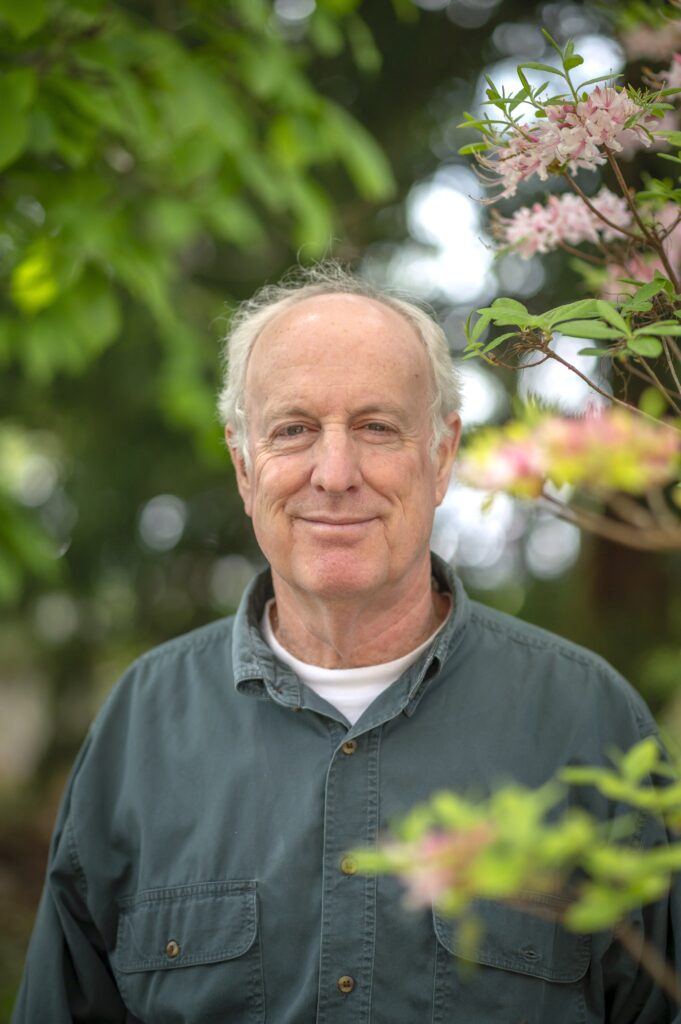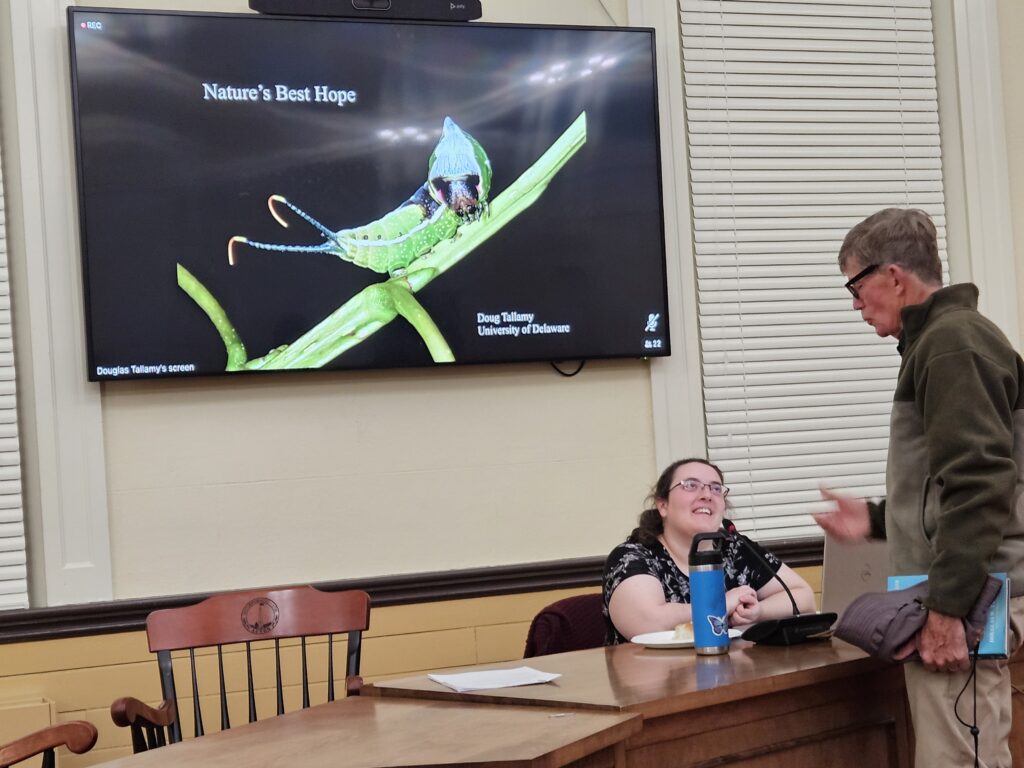The Middlesex Conservation District (MCD) held its annual meeting in the Faulkner Room of the Acton Town Hall on Dec. 9, 2024. The event featured a virtual presentation by Dr. Doug Tallamy, Professor of Agriculture at the University of Delaware, discussing his recent book, Nature’s Best Hope.

Dr. Tallamy is known for his actionable advice to homeowners on supporting pollinators and biodiversity through strategic planting of native species. As he told attendees, “My mission is to convert hope into action.”
His presentation began by recounting recent reports of global insect declines and the loss of three billion birds in North America, highlighting the failure of current landscape designs to support the plants and animals vital to our survival. These losses threaten our ability to maintain our standard of living on Earth, Tallamy said.
Dr. Tallamy’s presentation moved to topics and themes included in his book Nature’s Best Hope: A New Approach to Conservation That Starts in Your Yard. His first book, Bringing Nature Home: How You Can Sustain Wildlife with Native Plants, brought widespread attention to a critical issue: the decline of wildlife populations due to the rapid loss of native plants they rely on. His proposed solution was simple—plant more native species.
In his latest book, Nature’s Best Hope, Dr. Tallamy builds on this idea by presenting a grassroots conservation strategy. During his presentation, he showed examples of homeowners who have transformed their yards into wildlife-friendly conservation oases.
He said, “Our National Parks, no matter how grand in scale, are too small and separated from one another to preserve (native) species to the levels needed. Thus, the concept for Homegrown National Park, a bottom-up call-to-action to restore habitat where we live and work, and to a lesser extent where we farm and graze–extending national parks to our yards and communities.”
This method, driven by individual action, operates independently of government policies. Most importantly, it is practical, effective, and straightforward, offering clear, actionable steps for creating habitats in your own backyard.
By selecting appropriate plants for our landscapes, Dr. Tallamy said we can tackle both the biodiversity and climate crises. He also shared practical actions everyone can take to reverse biodiversity loss, emphasized the need to shift from opposing nature to collaborating with it, and explained why we are nature’s greatest hope.
Dr. Tallamy concluded his virtual presentation by encouraging attendees to start a new habitat and get it on the Homegrown National Park (HNP) biodiversity map, an interactive visual tool created through community collaboration to monitor the total area covered by native plants. More than 50 attendees watched and listened to the meeting via Zoom, and even more people attended the virtual event in-person at Town Hall and were thereby able to participate in the Q&A session.

Following Dr. Tallamy’s presentation, the Middlesex Conservation District held their Fiscal Year 2024 Annual Meeting. Established in 1947, the MCD promotes soil and water conservation efforts across Middlesex County, grounded in science and local expertise. Open to public participation, the MCD offers educational initiatives and programs aimed at fostering sustainable resource management.
Greg Jarboe is the Acton Exchange’s Council on Aging beat reporter and writes on many other topics as well. In a recent article, he interviewed three local stakeholders who are working to protect bees and other pollinators in Acton.
